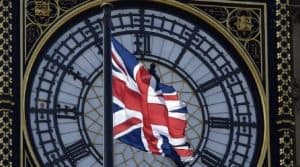
On Tuesday, the UK Finance Ministry announced that the country will start live testing blockchain technology for traditional market activities such as trading and settlement of stocks and bonds next year. According to Reuters, the plan is part of a drive to become a ‘global crypto hub.’
According to Gwyneth Nurse, the ministry’s director-general for financial services, using distributed ledger technology (DLT), which enables crypto assets, is a key priority for making finance market infrastructure more innovative and efficient for users.
A financial market infrastructure ‘sandbox’ will be launched in the UK next year for regulators to test DLT projects, Nurse said, a model UK regulators pioneered for nurturing fintech firms. Stocks, bonds, and other assets traded on the financial markets typically involve three distinct activities: trading, clearing, and settlement. The use of DLT could change this and enable financial assets to be issued in hours rather than days or weeks.
“The government may also want to test how trading and settlement might be brought together. A sandbox will allow to test new regulatory best practices and make permanent changes to ensure market users benefit,” Nurse commented during the annual IDX derivatives conference in London.
Nurse said the finance ministry and Bank of England will jointly assess a digital pound with a second public consultation later this year. If a central bank digital currency is approved, a digital pound would not be available until the second half of the next decade, Nurse pointed out.
UK FCA Warning
Last month, the UK’s Financial Conduct Authority (FCA ) warned consumers again about the risks of investing in cryptocurrencies. In its advisory, the watchdog raised concerns about some social media posts promoting crypto assets and non-fungible tokens (NFTs) but clarified that comments on individual products are not permitted.
The FCA also stated that those marketing crypto assets must comply with the guidelines set by the Advertising Standards Authority (ASA) and state that they do not regulate them.
